Posted on 19 February 2019.


With voting opening Thursday through Get Involved for the 2019 Student Government Association election, Monday night saw the first of two planned debates between executive candidates. Vice-presidential candidates faced off in the Student Center South Theater from 7-9 p.m., tackling topics from zone parking to controversial tweets. | Fiona Legesse/The Cougar
The vice-presidential candidates took to the stage Monday evening at the Student Center Theater for the 2019 Student Government Association Vice President Debate, co-sponsored by the SGA Election Commission and The Cougar. The candidates debated on and campaigned for several issues in which they and their respective parties hope to fix if elected.
This year’s election features three presidential candidates, each with their respective parties and platforms: Students Unite presidential candidate Allison Lawrence and her running-mate, vice-presidential candidate Maysarah Kazia; Coogs Unite presidential candidate Moiz Syed and his running mate, vice-presidential candidate Nader Irsan; and EVERY COOG presidential candidate Claude Johnson and his running mate, vice-presidential candidate Natasha Ulow.
“A great way to get to know the candidates is through the debates,” said Chief Election Commissioner Bo Harricharran. “All of the candidates that are running for the presidential ticket are really great and they’ve been out campaigning.”
The debate was moderated by Jorden Smith, opinion editor for The Cougar, and Sofia Sutterby, a representative from the SGA Election Commission. The lineup featured both general questions that were posed to all candidates and candidate-specific questions that were drafted prior to the debate. Moderators also asked questions tweeted in from audience members.
A particularly heated topic at Monday night’s debate was the focus on Irsan’s controversial resurfaced tweets, posted to his Twitter account in 2016 and 2017, which were recently deleted from the social media platform. In the tweets, Irsan used a racial slur and made comments that have been construed as homophobic.
“I did tweet those things and I was wrong, and I understand how I was wrong in doing it, and in hindsight, it is an issue that should be brought up,” Irsan said. “I’m bettering myself every day, isn’t that what the University of Houston is about? Bettering ourselves every day, becoming a phoenix and rising from our ashes, and bettering ourselves?”
In a rebuttal shortly afterward, Ulow said her intelligence and connection with marginalized communities extended far beyond what Irsan’s were when he published the tweets.
“In the context, they were not used in a racially motivated way. They were not derogatory in the use of them,” Irsan said.
Kazia also rebutted to Irsan’s statements concerning the tweets, saying they were, in fact, derogatory in nature.
“When you’re saying (the tweets) are not derogatory in nature but you’re saying you’d rather die than be gay, I believe that is derogatory,” Kazia said.
In further commentary regarding the tweets, Irsan said he has matured and that he never believed in the things he tweeted.
“Those were never my views, and my views have never changed,” Irsan said. “I am neither racist nor homophobic.”
Following a tweet-in question from an audience member, zone parking was another hot topic Monday night.
“If you were parked in one spot of the school and you have to go up all the way to the other side for class, when you’re coming back at night there’s a lot of different things that can happen on the way there,” Ulow said. “(With) the zones being so far out on campus, there aren’t a lot of policemen circulating the outer edges on campus as well as the inner core.”
Ulow said later that she believes parking closer to campus should be zone-free and that there should be more police patrols along the “outer edges” to prevent crime.
“I know zone parking has really been a big thing right now — there’s a lot of students who were really confused by it or not in favor of it,” Kazia said. “I think it’s important to remember that we’re a university of over 40,000 students. There are always gonna be students who have issues.”
Irsan said in his response that he believes there are positives and negatives to the zone parking issue.
“I definitely think zone parking is a step in the right direction,” Irsan said. “It’s definitely a foundation laid for us to build upon in the coming years, but I feel like it is something that still does need to be addressed and will always need to be addressed when it comes to parking and commuters.”
In a lighter “rapid fire” round following intermission, candidates were asked questions regarding their favorite Vine video, their favorite long-serving SGA justice, if they preferred James Harden or J.J. Watt, their least useful skill, and their least favorite vegetable.
“I would say my least useful skill, although it should be most useful, is my ability to speak multiple languages,” Ulow said. “I haven’t been able to showcase that here in the United States because English is used so regularly.”
Candidates were later asked whether they, as VP candidates, should be familiar with Registered Student Organizations, Greek Life and their respective issues on campus, which none of the candidates were particularly familiar with.
Irsan said he knows the senators in his party involved in Greek Life, but that he “(doesn’t) know what fraternity or sorority” and that they “kind of all sound the same (to him).”
Kazia said she knew the senator in her party involved with Greek Life, and Ulow said she could name all the candidates from her party, of which there is five total.
The conclusion of the debate featured full closing statements by Ulow and Kazia. However, Irsan was unexpectedly cut short of the full two minutes. Chief Election Commissioner Harricharran, who kept time during the debate, has already issued an apology.
“I believe that the last 30 seconds of the debate was wholly unfair due to the skewing of time,” said journalism sophomore and Communications Director for Coogs Unite Tweegee Nuguid. “I expect a better moderation panel in order to keep the (presidential) debate as fair as possible.”
Media policy and political science sophomore Melanie Louch, who is running for CLASS Senator with Students Unite, said she thought each candidate had equally good representation but hopes to see more from the presidential candidates in that debate.
“I know (Syed) is a really charismatic, well-spoken guy, so I want to see how he can kind of make up for what happened tonight,” Louch said.
Political science sophomore Kaden Lewis, who is running for Undergraduate Senator-at-Large with EVERY COOG, said he thought it was important that Irsan’s tweets were addressed, but that there are also “two very strong, female (vice-presidential) candidates” that students should focus on.
“What I do hope to see, at least from the three presidential candidates, is a true passion for representing students and a true passion for creating an environment where students can flourish and be successful,” Lewis said regarding expectations for the presidential debate.
On expectations for the presidential debate, Nuguid said she wants a fair debate and hopes to hear about policy implementation from each party.
“I hope to see a debate on policy and how each party addresses their initiatives because after all, one of these candidates will be the face of our university for the next year,” Nuguid said. “I truly want to see how they will enact their own policies so I will keep them accountable for what they promise to do.”
The Presidential Debate will take place from 7-9 p.m. Wednesday in the Student Center South’s Houston Room. The debate will be moderated by representatives from both The Cougar and the SGA Election Commission. Students will again have the option to tweet in questions for candidates using #SGAszn19.
Editor’s note: In an effort to make fair the situation in which VP candidate Nader Irsan’s closing statements were cut short, The Cougar agreed to publish his closing statement here. This statement has not been edited. Irsan’s closing comments:
My opponent’s character assassination attempt on me was ill-fitting behavior of a Vice-Presidential candidate. Keeping a level head in the midst of that chaos displays my qualifications for the position of Vice-President.
President Barrett who is running with Students Unite exemplifies hypocrisy by allowing current members of SGA to run again when last year he campaigned against the very thing he is doing. Over half of Students Unite’s party is currently in SGA.
Regarding my past tweets that were brought up. I take full responsibility for my actions, but at the same time ask you the students to understand my situation and have an open mind. Being placed in Child Protective Services for almost two years and being taken in by an African American family for most of that time played a big part in those tweets, but this is not an excuse. To anyone that has never made a mistake in your life, you have an absolute right to criticize me, but no one is perfect, myself included. We have all made mistakes. I have learned from my mistakes and have grown as a person because of them.
As students, we need to raise each other up and not tear each other down. That is what the University of Houston is all about; overlooking each other’s flaws and mistakes. To judge someone not based on a mistake, but rather to look at what they have done to help others and make an assessment on their character based off that.
In that regard, I feel my character and accomplishments make me the most qualified candidate for Vice-President and I hope you will stand with me in this endeavor.
news@thedailycougar.com
—
“Vice-presidential candidates spar in first SGA debate of election season” was originally posted on The Daily Cougar







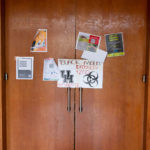
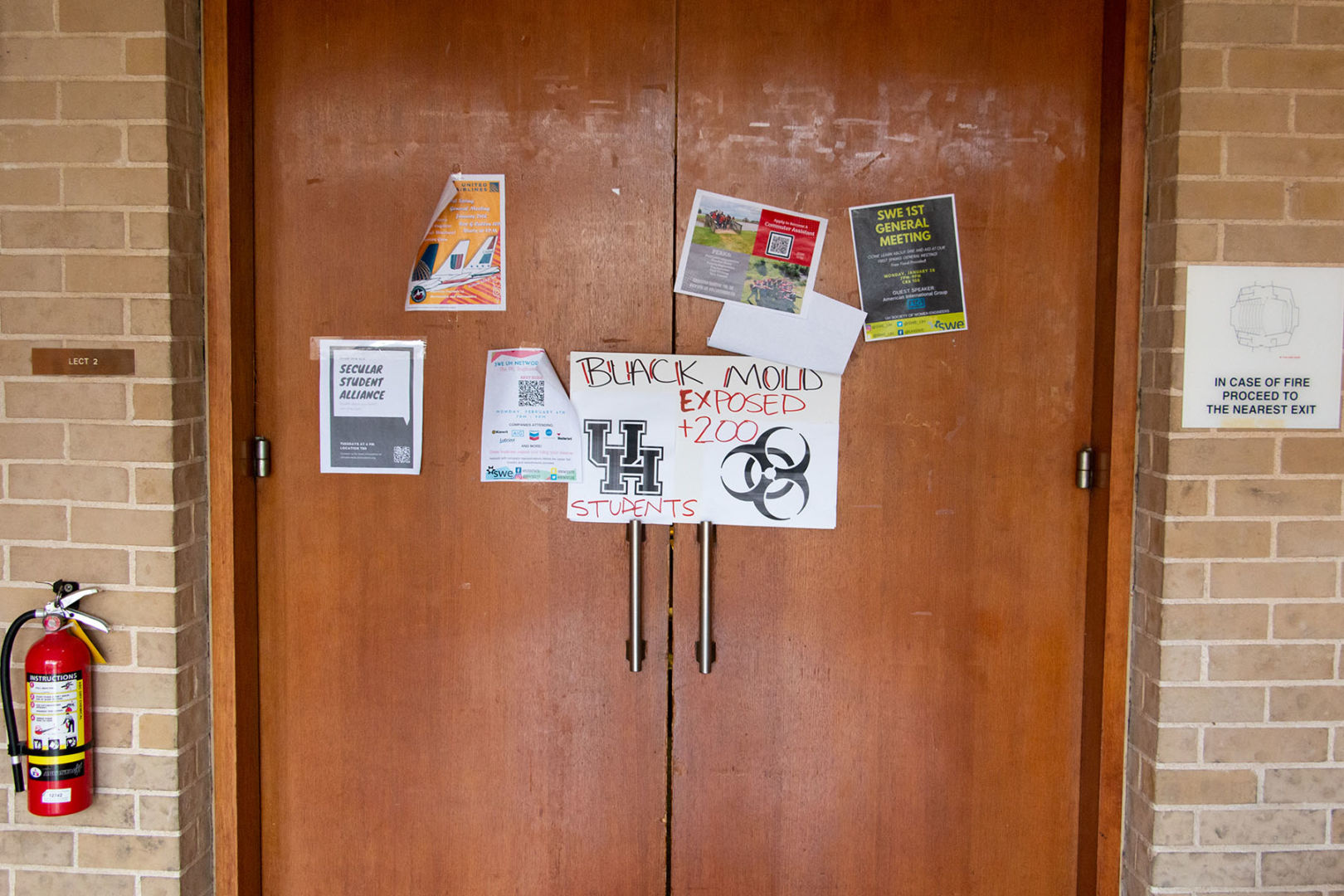
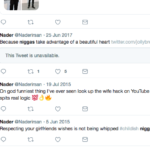

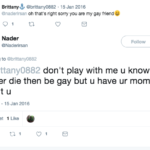
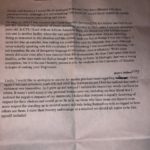

 A student was robbed of their cellphone early Monday evening while crossing the street at the intersection of Calhoun Rd. and Wheeler Ave by two suspects, according to
A student was robbed of their cellphone early Monday evening while crossing the street at the intersection of Calhoun Rd. and Wheeler Ave by two suspects, according to 






